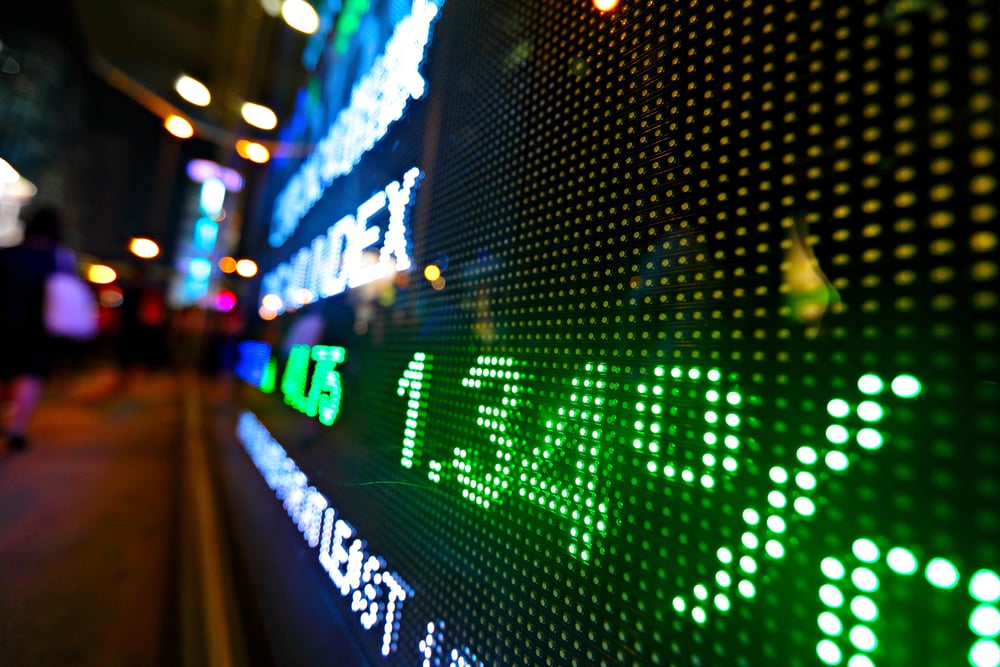
Over the multiple decades that newspaper comic “Fox Trot” ran, it covered a staggering array of story arcs. One of the best was when family patriarch Roger Fox decided he was going into day trading online. His 10-year-old son Jason set him up, telling him he could now trade stocks on margin, as such activity was “foolproof.” To which Roger noted that it was, unless the stocks go down. Jason, astonished, asked “Stocks can go down?”.
That kind of 10-year-old naivete may seem cute now, but the last few years have looked a lot like those old days of the nineties when stocks seemed to go up forever. Meanwhile, Vanguard's chief economist Joe Davis recently released a report suggesting that the inevitable down to our up may be coming, and sooner than anyone thought.
The Narrative Has Some Holes in It
Davis' projections are chilling to say the least. Vanguard's global chief economist, who also serves as the head of investment strategy therein, noted that the economic narrative we're seeing so far has a few holes in it.
The story so far: while the global economy is taking a bit of a breather, it's merely plateaued and is getting ready for a whole new push next year. A combination of trade tariffs falling away following a successful trade deal between the US and China, and interest rate cuts finally contributing, will give the economy a second wind.
Davis, meanwhile, doesn't see it. The trade deal doesn't look like it's happening any time soon, and with the rest of the world a grab bag of “geopolitical uncertainty and unpredictable policy-making,” as Davis put it, the chances of a second wind down look that great. Davis expects demand to slow in 2020, supply to follow accordingly, and US growth to hit an anemic one percent in 2020.
Elevating Risks and the Response Therein
Davis continues with his litany of disaster, pointing to a “guarded” outlook on equities in the short term, as well as elevated chances of a “large drawdown” for not only equities but also for the more volatile asset classes, known as “high-beta”.
However, Davis does offer a note of hope, suggesting that investors in such a market focus instead on fixed-income assets with a track record for quality results. Davis refers to these assets as “...a key diversifier.”
The Macro Landscape Provides Support for Davis' Projections
This week offered earnings reports from several major retail players, and news seemed less than encouraging. Home Depot dropped its sales expectations for the rest of the year after a soft third-quarter, and retailer Kohl's cut its own profit forecast. Sure, the news isn't all bad—TJ Maxx beat profit expectations handily—but with so many breeds of retail seeing a decline, it's easy to think that the consumer might be cutting back a bit.
When both a clothier and a home improvement retailer are posting reduced expectations, though, it does suggest a systemic issue may be at work here. An Experian study suggests that the average holiday spends for this year is expected to be $1,679, which is up 75 percent from last year. Though that's limited to just over 1,100 shoppers polled, it does suggest holiday shopping will be brisk. However, after the holidays, the consumer may be planning a diet for more than just the waistline.
Is a Downturn a Self-Fulfilling Prophecy?
Projecting the economy forward any length of time is always a challenge. No one knows just what direction the trade war will end up going, and that's just one particularly large factor among a host of other possibilities. Suggesting a downturn may come long enough, meanwhile, it may well make it happen as consumers adjust their behavior to prepare for layoffs. Such a move reduces consumer demand, and that in turn reduces supply, which makes the downturn actually take place.
Still, much like Roger Fox, we all know that stocks do go down, and eventually, every bull market gets routed into bear territory for a while. Planning ahead is seldom a poor move, if for no other reason than sheer peace of mind.
Before you make your next trade, you'll want to hear this.
MarketBeat keeps track of Wall Street's top-rated and best performing research analysts and the stocks they recommend to their clients on a daily basis.
Our team has identified the five stocks that top analysts are quietly whispering to their clients to buy now before the broader market catches on... and none of the big name stocks were on the list.
They believe these five stocks are the five best companies for investors to buy now...
See The Five Stocks Here
Wondering what the next stocks will be that hit it big, with solid fundamentals? Enter your email address to see which stocks MarketBeat analysts could become the next blockbuster growth stocks.
Get This Free Report
Like this article? Share it with a colleague.
Link copied to clipboard.